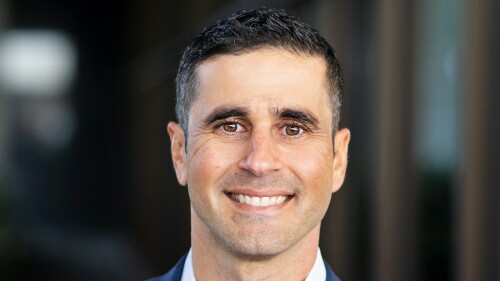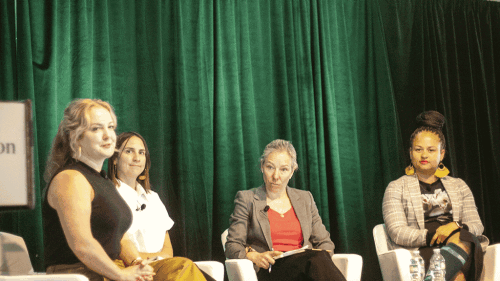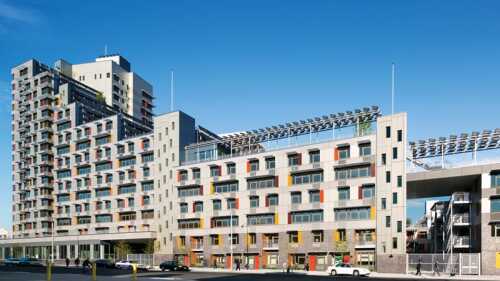They have a variety of personal motivations for their six-figure gifts and hope others will follow their example.
For some members of the Governors Society, a group of donors who have made lifetime contributions totaling $100,000 to $249,999 to support ULI’s activities, giving is a way to support the Institute’s efforts to remedy the worldwide shortage of attainable housing, reduce carbon output to fight climate change, and educate a diverse future generation of leaders for the real estate profession.
For other governors, their philanthropy is a gesture of gratitude for the role that ULI has played in their professional careers and achievements, or a way to honor friends they made through the organization. Others hope to boost the Institute’s growth and expansion around the globe to Asia, where ULI members’ expertise and problem-solving could have a major impact. And some just want to be an inspiration to other ULI members.
But what is most important about being a governor, in the view of ULI Global CEO Ron Pressman, is the chance to have a lasting impact with their dollars.
“It’s all about creating a sustainable world, an equitable world, and a more diverse and inclusive world,” explains Pressman, who himself joined the ranks of governors with a $100,000 contribution shortly after taking the job at ULI. “Governors have realized that this is an opportunity to be part of something that’s bigger than them.
“They see the impacts, the accomplishments that we’re achieving,” he continues. “We’re bringing down the carbon footprints of buildings, helping create housing that people can attain in communities where they’re working, and increasing the amazingly diverse workforce that is now starting to get attracted to this industry. The governors are realizing that this is a really big deal, and something they can be proud of.”
The Governors Society is a tradition that dates back more than half a century. In 1970, Robert Nahas, then president of ULI, approached 16 other members to join him and establish the ULI Foundation, an endowment to provide ongoing support for ULI’s activities and ensure that the Institute would maintain both its independence and standards of excellence.
Each of the founding governors committed to give at least $50,000—gifts that, adjusted for inflation, would be substantially more in today’s dollars. In recognition of their gifts, governors receive a few special benefits, such as recognition in the Honor Roll of Donors, invitations to Key Leaders events and governors’ receptions, as well as access to other donor events and program offerings.
Member Growth Leads to Giving
Many governors describe their giving as intertwined with their evolution as ULI members. Clare De Briere, executive vice president of Skanska USA Commercial Development in Los Angeles, is chair of ULI’s Americas Executive Committee, a global governing trustee, and a Global Board member. She was introduced to ULI early in her career when she worked for Wayne Ratkovich, a ULI Life Trustee.
“He had me sit in on meetings and help with events,” De Briere recalls. “That taught me so much about all the good that ULI does through our district councils. One of the things he always said was, ‘Never say no to anything anybody asks you to do for ULI—you’ll always get more back.’” Indeed, she has found that her involvement has “made me a better thinker about real estate,” as well as more cognizant of the impacts—both positive and negative—that her developments may have on the communities in which she has worked.
For De Briere, making regular donations to the ULI Foundation seemed like a natural fit with her growing involvement.
“You’ve got to put your money where your mouth is,” she says. Her most recent major contribution, targeted at the ULI Randall Lewis Center for Sustainability in Real Estate, also enabled her to contribute to its efforts on climate change, an issue that resonates with the Los Angeles native.
“When I was growing up here, you couldn’t see the mountains most days because the smog was so bad,” she says. But just as California’s pollution-control laws helped improve air quality dramatically, she is hopeful that reducing carbon emissions similarly could have a positive impact on climate change. She notes that her employer, Skanska, is designing a net zero carbon office tower in downtown L.A.
“It’s important for our company, for our culture, to have organizations like ULI that can support the ‘why’ behind focusing on zero carbon—why we’re doing it—is really important as well,” De Briere says.
Another governor, Michael McNamara, retired from his post as global head of real estate investments for Manulife Investment Management in 2022 but continues to remain involved in the Institute. As a leader of the Urban Development and Mixed-Use Council, McNamara was motivated to become a donor—both by his urge to emulate other members who had become ULI benefactors, and his desire to get others to contribute as well. “I wanted to lead by example,” he says.
But McNamara also has felt the urge to pay it forward and contribute to an organization that helped him in his career. “Some of the strongest relationships business-wise—and some of them developed into strong personal relationships as well—have been driven by ULI,” he says. “Of my top 10 friends in the industry, I would say at least half of them come from ULI.”
Richard Peiser, the Michael D. Spear Professor of Real Estate Development at Harvard University’s Graduate School of Design, says his involvement in ULI dates back to the 1970s, when he worked for legendary developer Gerald Hines, and that the organization has played an important role in his career, publishing all but one of his books, including the fourth edition of Professional Real Estate Development: The ULI Guide to the Business, cowritten with David Hamilton, Suzanne Lanyi Charles, Sofia Dermisi, and Nick Egelanian, which was first released three decades ago.
“It’s by far the most important organization that I belong to for professional contacts,” he says. Peiser fondly recalls a ULI meeting in which Roy Drachman—one of the inventors of the modern shopping center—showed up in the hotel lobby and asked whether anyone wanted to go with him to see local examples of the concept. “I was the only person who stood up, and to see Boca Raton, Florida, shopping centers through Roy’s eyes was an awe-inspiring experience.”
After decades of involvement, Peiser sees ULI as a vital organization for an industry that is continually changing and evolving, where practitioners need to be exposed to the newest and latest ideas.
“The ethos is that people will share the truth about what’s happening with their projects,” he says. “In the council meetings, what you say in the room stays in the room, so you can speak openly. That candor is one of the things that’s unique about the organization, as well as the access that younger people have to top people in the industry.”
With such a strong connection to ULI, Peiser also became a donor early on and kept up his contributions over the years, eventually rising to the level of governor.
“They had terms that made it easier than popping out a huge amount of money all at once,” he says, noting that the flexibility enabled him to stagger his major gift over a five-year period.
For some governors, giving is also a way of recognizing ULI leaders who have been influential in their own lives and careers. John R. Williams, president and chief investment officer of Irvine, California–based Avanath Capital Management and of both the ULI Silver Multifamiliy Council and the ULI Orange County district council, is a long-time ULI governor as well. Williams made one of his donations to the Institute to honor the memory of the late James J. Curtis III, onetime ULI Foundation chairman and a Life Trustee.
“I always considered him a good friend and mentor,” Williams explains, recalling that he got to know Curtis through doing business with him in San Francisco, and that their work together at ULI helped their friendship to grow.
Contributions to Support Growth and Change
Other governors are focused on the Institute’s growing global influence. Benjamin Cha, former chief executive officer of Grosvenor Group Asia Pacific and currently a board member at HKR International, has held a variety of key posts at ULI, including serving as a global governing trustee, Global Board member, and member of ULI Asia Pacific’s Executive Committee. Cha says he was drawn to ULI by the organization’s multidisciplinary nature—besides developers, “you have people from academia, architecture, planning, engineering, and, increasingly, sustainability” working on solving problems and improving the quality of life in the world’s cities.
He is also enthusiastic about educational programs such as UrbanPlan, which gives high school and college students, as well as public officials, the opportunity to participate in a simulated real estate project and learn about the challenges of development. His former company, Grosvenor, helped support the rollout of UrbanPlan in Hong Kong.
Cha feels strongly about building ULI’s presence throughout Asia, where the organization has a fraction of the members it has in North America and Europe.
“My giving recently has been to support the growth and development trajectory of ULI Asia,” he says. “What ULI is doing in Japan, in Hong Kong, the growth in China, the growth that we expect from launching ULI India—I think there’s just a lot of potential, and a lot of support that the organization needs.”
Pressman emphasizes that governors’ contributions are also investments in the future of the planet, and the positive change that ULI’s efforts can bring to improving life in the world’s cities. That is the theme of the current “Our Cities, Our Future: the Campaign for the Urban Land Institute,” which aims to raise more than $100 million in philanthropic investments.
“By the end of 2080, it’s projected that 80 percent of the world’s population will live in 10,000 cities, each of which will have more than a million residents,” he explains. “And we’d like to think that those cities are going to be great places to work and live and play, to raise families, to grow old and be safe and secure, and live in a sustainable, equitable, diverse environment. That’s why people are stepping up to put their money behind an effort like this.”
PATRICK J. KIGER is a Washington, D.C.–based journalist and author.










